People will come, Ray.
And they’ll walk out to the bleachers, and sit in shirt-sleeves on a perfect afternoon. They’ll find they have reserved seats somewhere along one of the baselines, where they sat when they were children and cheered their heroes. And they’ll watch the game, and it’ll be as if they’d dipped themselves in magic waters. The memories will be so thick, they’ll have to brush them away from their faces.
People will come, Ray.
The one constant through all the years, Ray, has been baseball.
America has rolled by like an army of steamrollers. It’s been erased like a blackboard, rebuilt, and erased again. But baseball has marked the time.
This field, this game — it’s a part of our past, Ray. It reminds us of all that once was good, and it could be again.
Ohhhhhhhh, people will come, Ray. People will most definitely come.
—————–
Nah.
They won’t come. Not like before. Not to Major League Baseball games … because there are no games to go to.
The “Field of Dreams” speech always got to me, making me nostalgic and sentimental and weepy.
Now it’s a reminder of what’s been lost. We can pretend that baseball will come back, and everything will return to normal. The ballpark will be filled with happy people watching an exciting game, marveling at the players who entertain them. But truthfully, that fantasy version of major league baseball has been fading away through the years.
And even a sappy bloke like me – who always romanticized the game of baseball – has understood that for a while. It isn’t my father’s game, and it isn’t my grandfather’s game. I’m not living in the past; I’m not that type of guy. But how can I live in baseball’s future when the immensely wealthy individuals own teams and run the sport are pulling the game away from me?
My state of denial can’t coexist with the state of major-league baseball. Reality wins out.
I’m thinking of all of the sincere, devoted fans who had to scramble to cancel their scheduled trips to spring training sites in observance of a cherished tradition. I’m thinking of all the ballpark workers and small businesses at those sites in Florida and Arizona who got walloped by MLB’s absence because of an easily avoidable labor war that closed the stadium gates and erased the games. The owners didn’t just lock out the players; they’re locking out the fans and the folks who sell the peanuts and cracker jack and hot dogs.
And now commissioner Rob Manfred has wiped out the first week of regular-season games. As he stepped forward to deliver prepared remarks in Jupiter, Fla. on Tuesday, Manfred was smiling and laughing. He laughed again during an exchange with a reporter.
And the commissioner had the audacity to say, “Concern about our fans is at the very top of our consideration list,” as he went into the full Pinocchio mode. The owners and Manfred locked out the players – and fans – three months ago, waited 43 days to make a proposal to the players, and wasted many weeks by pitching gratuitous offers.
Manfred also offered up this whopper: “The last five years have been very difficult for the league from a revenue perspective.” Fact-check: even with the 2020 pandemic season, MLB has raked in $43 billion over the five years cited by Manfred.
The owners never got serious or conducted the negotiations in a genuine manner; even the marathon session that began Monday and lasted into the wee hours of Tuesday was part of a strategy. It was staged to make it look like they tried really, really hard – knowing that the players would reject the “last and best” proposal from the owners. And MLB could then frame the players as the bad guys in this drama. Gamesmanship is part of this, and the owners and Manfred are much better at it than the players.
As Toronto Blue Jays player rep Ross Stripling told Sportsnet in Canada: “It got to be like 12:30 (in the morning) and the fine print of their (competitive balance tax) proposal was stuff we had never seen before. They were trying to sneak things through us, it was like they think we’re dumb baseball players and we get sleepy after midnight or something. It’s like that stupid football quote, ‘they are who we thought they were.’ They did exactly what we thought they would do. They pushed us to a deadline that they imposed, and then they tried to sneak some (crap) past us at that deadline and we were ready for it. We’ve been ready for five years. And then they tried to flip it on us today in PR, saying that we’ve changed our tone and tried to make it look like it was our fault. That never happened.”
This rancor dates back to the 2016 Collective Bargaining Agreement when the players cut a bad deal. The players have only themselves and their failed leadership to blame for that, but it doesn’t mean they should continue to roll over for the owners in subsequent CBA bartering.
The owners had a dominant position after one-sided CBA outcomes in 2011 and 2016 and weren’t about to let the players save face by making significant gains in the 2022 standoff.
This is what MLB owners and Manfred don’t want: to have the league’s players in line with what we see in the other major sports leagues. Players in the NHL, NFL and NBA receive approximately 50 percent of the revenue in their sports (or just under it.) MLB players receive about 38 percent. That 50% share is long out of reach for the MLB players. But considering that MLB total salaries have been declining since 2015, the players are hardly devils in their desire to reverse the trend.
Many fans resent the bleating of “millionaires” that play baseball. But this past season 71 percent of big-league players were paid less than $1 million in salary. A good living, yes. But the perception of what most players make is preposterously off base.
How can anyone seriously depict players as greedheads when total revenue collected by the baseball owners continues to grow, even after the pandemic, with the MLB collecting nearly $10 billion in 2021? And this is before the new ESPN deal and the gambling money flow in to raise the revenue to historically high levels. So why should players settle for less instead of seeking a fairer share of the revenue? That’s perfectly reasonable.
Moreover, the value of MLB franchises continue to soar, even for owners that make no attempt to win. We can find an example in the NL Central. Bill DeWitt Jr. (Cardinals) and Bob Nuttig (Pirates) took control of their franchises within months of each other back in 1995-1996. Under DeWitt, the Cardinals’ franchise value has increased 1,369 percent. The Cardinals continue to win, win, win. But Nuttig’s team has had only four winning records in the last 25 years, and the Pirates’ franchise value has risen 1,305% during his ownership.
And yet MLB owners continue to make welfare payments – through revenue sharing – to Nuttig and other unethical owners that know they can go into the tank and still make impressive profits. What would be this man’s incentive to win? The answer: he has none. But the players are the greedy ones, eh?
The worst thing about this in terms of the negotiations? By the end of the back-and-forth sparring, there really wasn’t that much difference between the two sides.
My friend the baseball analyst Joe Sheehan, did the math and gave us a simple breakdown:
“What we can quantify, however, leaves us with between $215 and $265 million separating the two sides in 2022. MLB had $10.7 billion in revenue in 2019, the last pre-pandemic season, and it rebounded to an estimated more than $9 billion in 2021. New television revenues — including pre-sold rights to an expanded wild-card round — and the ongoing return of fans to ballparks are expected to push league revenue to new heights in 2022. The known concessions in the proposal, expanded playoffs and advertising on uniforms, would have by themselves covered half the gap between the two sides on the contested matters. Given the owners’ banked gain on the number of playoff teams and uniform advertising, if the lockout costs baseball even 1% of its projected revenue — hardly unlikely — it wipes out the difference between these offers.”
For the owners, the mission appears to be total victory and stomping the players. But Joe Sheehan made a point: if the players backed away from their most substantial requests (as they did) and winnowed the differences with the owners down to a manageable size (as they did), what’s the point of continuing this awful battle? The players can’t win. The owners already have won, but they’re bullies and aren’t ready to accept the victory. But make no mistake, the owners won’t stop the fight; they’re going for the knockout.
More Sheehan:
“I argued this two weeks ago and I’ll stand by it today: This is a ridiculously small fight, one that the owners have picked for reasons having little to do with money and less to do with baseball. The players are being locked out for pocket change in the grand scheme of things. The owners should lift the lockout today, live without the luxury tax for a season, and continue negotiating. That all remains true.
“Have we reached a point, however, where it’s fair to ask the players to make the same calculation? While they made some aggressive asks early in this process, their current platform doesn’t include the kind of issues that warrant a war.
“They never asked for a tripled minimum salary. They never asked for the tax system to be eliminated. They are no longer asking for the revenue-sharing subsidies to be changed. They’re no longer asking for earlier free agency, earlier arbitration, or mechanisms that force low-payroll, low-win teams to pay more. They’re not proposing tax thresholds that track revenue growth. They’re asking for the last CBA with the numbers changed, same as the owners, just using different numbers.
“I take no pleasure in pointing this out. I lean towards the players in these fights because the MLBPA doesn’t lie about numbers. It doesn’t make easily falsifiable claims about baseball’s competitiveness, or its financial success. Players don’t make playing baseball sound like a favor they are doing for the world. I lean towards the players because the things they want — fair competition for talent, primarily — are things that would make baseball better as a whole. It’s hard to convince people of this, but the fans’ interests are more in line with the players’ interests than those of the owners.
“The unfortunate fact is that the players have been going backwards for a long time, accepting revenue sharing in 1996 and a tax system in 2002, then acceding to the expansion of those systems in the 2010s. If they got everything in their current offer, it wouldn’t change anything except move $250ish million from the owners to the players. Maybe it’d be $300 million, $350 million a year by 2026.
“That’s real money, but it’s just money. Every lousy trend in the business of baseball would still be in motion, even likely accelerating as revenues further distance themselves from pay. Nothing in the players’ platform addresses teams not trying to win.
“Nothing in the players’ platform gets players to free agency sooner. Nothing in the players’ platform gets players to arbitration earlier, or addresses the treatment of up-and-down players, or makes a meaningful dent in the practice of manipulating the service time of young stars.
“The owners won this round. They staked out extreme positions, they refused to bargain over certain key subjects, they disappeared for six critical weeks of negotiating time. They have developed, for those of us who remember the history, an astonishing level of message discipline and public unanimity.
“They continue to benefit from turning the commissioner job into one that’s explicitly on the owners’ side. Previous lockouts were undercut by the actions of commissioners with both power and the wherewithal to use it. There is no longer any chance of that happening.”
(Please consider subscribing to Joe’s essential baseball newsletter by going to JoeSheehan.com)
Management presumably will keep going for a while, seeing if it can break the union. When will this be over? I make no predictions. At first, the players will absorb the most damaging hit because they’ll lose 100% of their salaries in the canceled games, and owners won’t feel any pain because of the security of broadcast-deal funding. But when the TV dollars eventually get pulled back – because there are no games to televise – the owners will have a reason to make peace with the players.
The owners don’t realize this now – obviously – but the cost of declaring war on the players will likely hurt worse than they believe. Baseball’s foundation has weakened. The TV money remains rich, but many other indicators are troubling. There is a generational drag, with hardcore baseball fans getting older and the sport losing a high percentage of young sports fans that remain disconnected from baseball. And it’s easy to understand why. As Tom Verducci notes, since Manfred became commissioner in 2015, the pace of baseball has slowed to a crawl with an average dead time in a game increasing 17%.
Here’s some perspective from Roger Noll, a Stanford economist who during his career has consulted for MLB players and owners. So he’s seen it it from both sides.
Speaking to SI.com, Noll said: “When it all settles out and we’re two years into the future, it’s always been the case in the past that the owners paid roughly twice as much” as players for a work stoppage.
So what’s the point?
“The answer,” Noll told SI, “is every cohort of owners, historically, has had to learn the lesson for themselves that the Major League Baseball Players Association is an extremely strong and unified union, despite the differences in interests among the players, and they have to learn on their own that you can’t break it. That’s what happened in ’94–’95. That’s what happened back in the ’80s. That’s what happened back in the ’70s. It‘s just that we‘ve now had enough turnover of teams, so we have a new crop of owners that basically want to play a game of chicken, and they’re gonna lose.”
As average player salaries continue to drop, 26 of the 30 MLB owners are listed as billionaires. They enjoy healthy profits, have no problem shaking down their communities for public-dollar handouts, and have the security of knowing that they can sell their franchises for a phenomenal price.
Even the small-market owners can cash in at an exorbitant rate if they choose to do so. David Glass bought the KC Royals for $96 million and after 20 years of ownership sold them for $1 billion.
That’s why the current shutdown is so offensive. The owners have everything – and more – and are still taking the game away from the fans, away from workers, away from America. Flaws and all, baseball could be a source of joy and comfort during these troubled times in the nation and the world. There is value in ritual and normalcy. Instead, the MLB owners and commissioners have added to the sadness and disruption and have added anger instead of soothing it. But hey, go slap the players around some more.
As the Cardinals reminded us in a news release issued Tuesday, the home Opening Day is scheduled for April 7 at Busch Stadium. Well, OK but we can’t look forward to anything right now … because we don’t know what to expect right now. Baseball’s owners just ruined the chance for their game to a full, normal season for the first time since 2019. Who does that? The same group that crazily decided to scrub the players’ names and images from MLB’s online portal and MLB team sites at the start of the lockout are still making the players vanish. Nice way to run a business. Just trash everything and assume that fans will return in massive numbers.
We’ll find other things to do. And after the experience we went through during the pandemic, living without baseball will be pretty easy – except for those who rely on ballpark-related income to pay the bills. In their enthusiasm to clobber the players the owners care nothing about the collateral damage they’re causing, and that’s disgraceful.
It ticks me off just thinking about Adam Wainwright and Yadier Molina potentially being denied a proper sendoff and their chance to set a MLB record for most career started by a pitcher-catcher combination. Shameful.
It ticks me off, thinking about all of the pitching injuries that will pop up after a rush job to get ready for a season on short notice. How many teams will have their seasons wrecked because of it?
Don’t know. But don’t ask an owner about any of this, because they’re hiding. And when the players are allowed to return and play ball, the owners will hide behind them too. But the fans won’t forget the owners’ actions. Having been taken for granted, fans may just go ahead and make like Logan Roy on the HBO show Succession and snap “(bleep) off” — when it’s time to take them out to the ballgame.
MLB has its own cancel culture.
Canceling the opening weeks of spring training. Canceling regular-season games. Canceling players. Canceling fans.
Well, soon the fans will have their say in a way that can matter.
And a lot of fans will be canceling baseball.
Buy me some peanuts and cracker jack?
No. I’ll pass.
Thanks for reading …
–Bernie
Bernie invites you to listen to his opinionated sports-talk show on 590-AM The Fan, KFNS. It airs Monday through Thursday from 3-6 p.m. and Friday from 4-6 p.m. You can listen by streaming online or by downloading the “Bernie Show” podcast at 590thefan.com — the 590 app works great and is available in your preferred app store.
Follow Bernie on Twitter @miklasz
For the last 36 years Bernie Miklasz has entertained, enlightened, and connected with generations of St. Louis sports fans.
While best known for his voice as the lead sports columnist at the Post-Dispatch for 26 years, Bernie has also written for The Athletic, Dallas Morning News and Baltimore News American. A 2023 inductee into the Missouri Sports Hall of Fame, Bernie has hosted radio shows in St. Louis, Dallas, Baltimore and Washington D.C.
Bernie, his wife Kirsten and their cats reside in the Skinker-DeBaliviere neighborhood of St. Louis.




